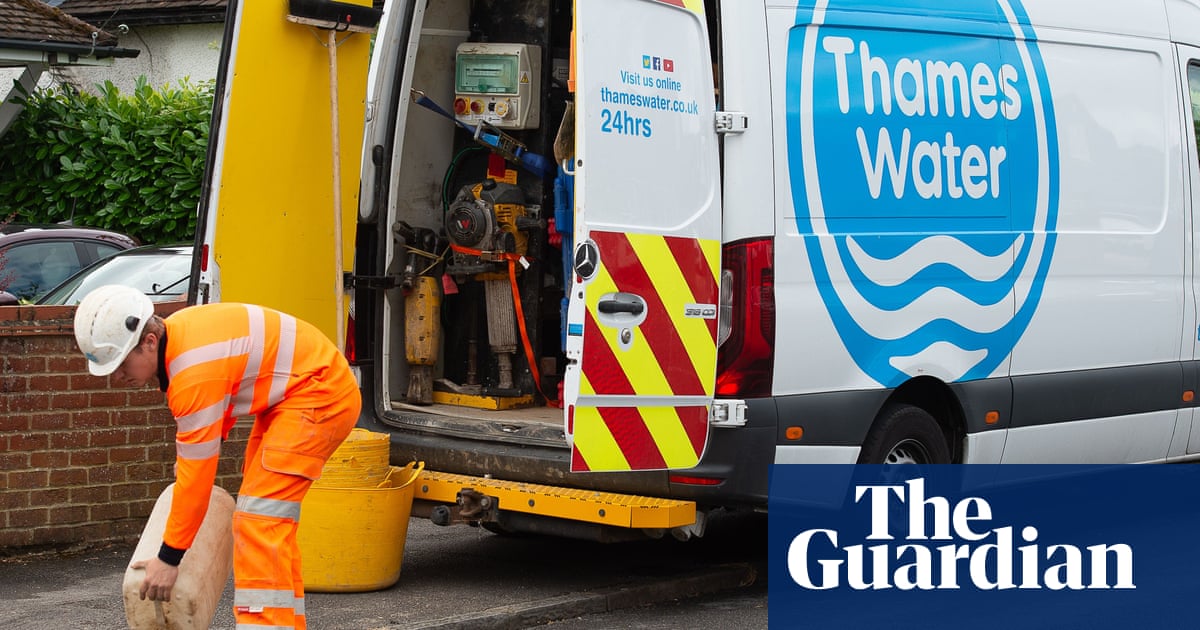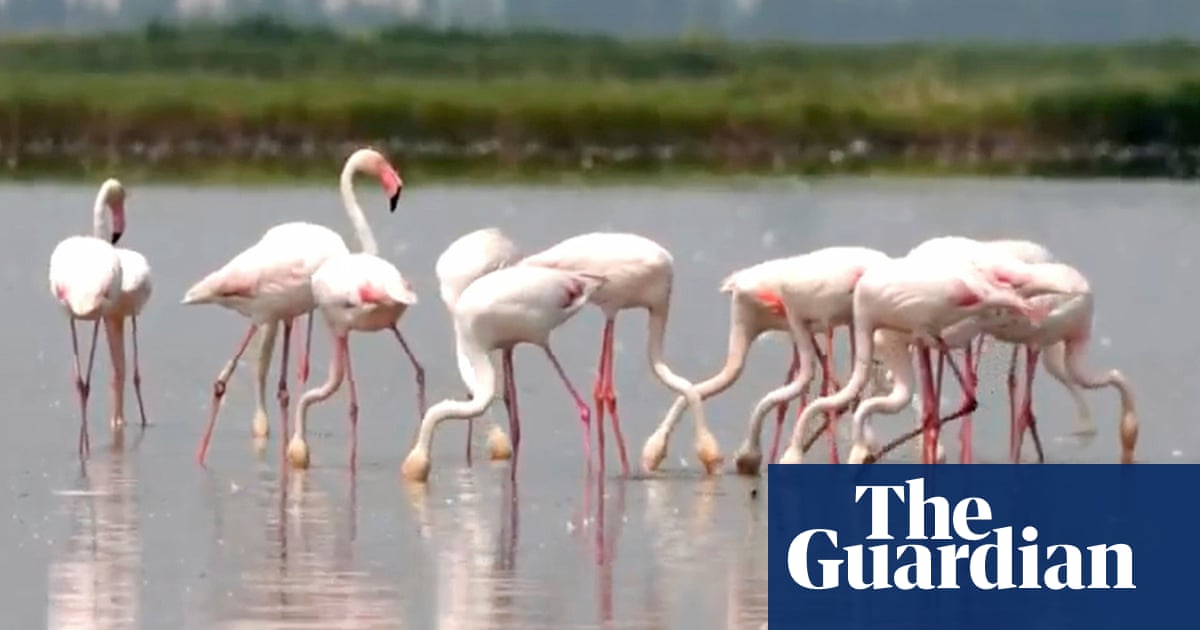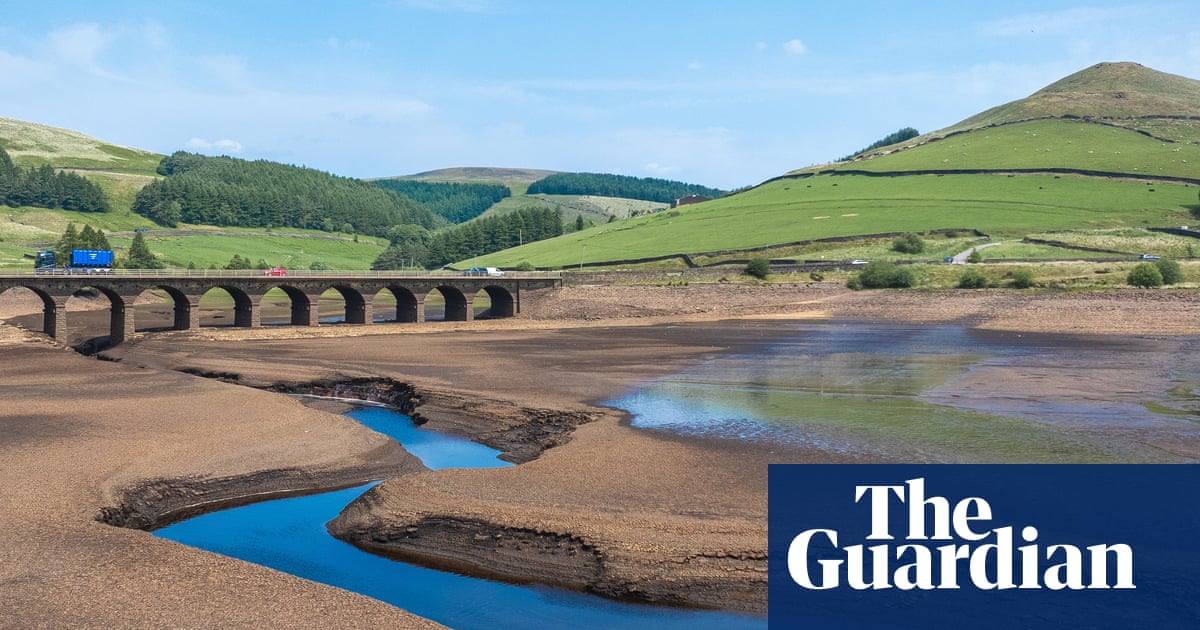Thames Water spent £136m on securing emergency funding, leaked document suggests | Thames Water

Thames Water spent at least £136m on the effort to secure emergency funding over 12 months, according to a leaked document that suggests costs outstripped the £130m the struggling utility paid in fines.
The law firms Linklaters and Akin Gump received £45m and £26m respectively during the financial year to March 2025, and another 10 firms were paid more than £1m, according to a document listing “atypical expenditure” for the year, seen by the Guardian. It is the first time the fees paid by Thames Water have been detailed publicly.
The water company scrambled in the last year to secure emergency funding to avoid temporary nationalisation as it struggled under a £20bn debt pile. That effort led to a court showdown in January and February to force losses on some debt holders in exchange for up to £3bn of rescue cash to see it through this year.
Thames, which is quickly burning through that cash, is in talks with the regulator, Ofwat, over a takeover by creditors who hold much of its debt, after the private equity firm KKR walked away from an auction.
Lenders, ranging from big institutional investors such as Aberdeen, BlackRock, Invesco and M&G to US hedge funds including Elliott Management and Silver Point Capital, propose injecting £5.3bn in new debt and equity. The creditors argue they will need relief from future fines – and possibly the reversal of past fines – if they are to invest in Thames, which provides water and sewage services to 16 million customers in London and south-east England.
Yet the figures show that fees paid to advisers in the process to refinance and sell Thames – under the codename Project Crabtree – rival the fines levied by Ofwat for sewage spills and illegal dividend payouts in the last year. Thames was forced to pay the fees for its own advisers and for those of creditors, as is usual in restructuring processes.
Thames has also faced criticism for refusing to recover millions of pounds in bonuses paid to senior managers. The UK water industry is also likely to face scrutiny over the coming weeks, as heatwaves lead to drought conditions in some parts of the country. Yorkshire Water and South East Water, covering Kent and Sussex, announced hosepipe bans in the last week.
Legal fees related to Crabtree appear to be significantly larger than Thames’s previous estimate, which were provided in a letter dated 30 May to Alistair Carmichael, the Liberal Democrat MP who chairs parliament’s environment committee. In that letter, the Thames Water chief executive, Chris Weston, wrote that “legal fees” in relation to the recapitalisation were £67.6m. However, the internal document suggests that fees paid to Linklaters, Akin Gump, A&O Shearman and Quinn Emanuel totalled £79m that year. Thames did not explain the disparity.
Consultancies AlixPartners, Bain, Deloitte, KPMG, Kroll and Teneo were also paid £39m collectively under exceptional spending during the year. AlixPartners received £12.8m, including amounts not related to the recapitalisation. The payments to the company continued after partner Julian Gething was seconded to Thames Water to act as its chief restructuring officer in December 2024. Bankers at Jefferies representing the creditors received £3.1m, while Rothschild received £1.5m.
People close to the process said the fees reflected its complexity, involving a restructuring worth billions of pounds, hundreds of creditors, and the UK’s biggest water company.
The highest legal fees coincided with the court case. The documents suggest Linklaters was paid £10.1m in January 2025 and £5.5m in February, while Akin Gump was paid £3m and then £3.7m.
after newsletter promotion
Thames Water and the creditors have said all fees related to the recapitalisation will be funded by lenders rather than customers. Nevertheless, the payment of fees represents spending of money that might otherwise have been available for investment in Thames’s infrastructure.
Ofwat has also said customers will not bear the cost of the Project Crabtree fees, arguing that its calculation of water bill increases does not take into account advisory costs.
Charlie Maynard, a Liberal Democrat MP, challenged the debt restructuring in court, arguing it would be better for bill payers for the company to enter special administration – essentially a temporary nationalisation. He drew attention to the high level of fees in court.
“This a massive fee bonanza for advisers,” Maynard said. “Whether these charges are directly put on our bills or loaded on to the walking disaster that is Thames Water’s balance sheet, either way this is money out the door. If the customers aren’t paying, can Ofwat explain who is?”
A Thames Water spokesperson said: “Customers will not pay for these fees, and fees relating to the recapitalisation will not lead to an increase in any customer bills. Adviser fees are commercially sensitive information, so we will not comment on their accuracy and cannot verify the source of information.”
A spokesperson for the creditors said: “The creditors have submitted a £17bn recapitalisation of Thames Water, expected to represent the largest financial loss suffered by investors on an infrastructure asset in British history. Several billion pounds of debt will be written off to restore financial resilience, improve environmental performance and restore customer trust as quickly as possible, with no taxpayer risk.”
AlixPartners, KPMG and Teneo declined to comment. The other advisers were approached for comment but had not responded by the time of publication.
Quick Guide
Contact us about this story
Show
The best public interest journalism relies on first-hand accounts from people in the know.
If you have something to share on this subject you can contact us confidentially using the following methods.
Secure Messaging in the Guardian app
The Guardian app has a tool to send tips about stories. Messages are end to end encrypted and concealed within the routine activity that every Guardian mobile app performs. This prevents an observer from knowing that you are communicating with us at all, let alone what is being said.
If you don’t already have the Guardian app, download it (iOS/Android) and go to the menu. Select ‘Secure Messaging’.
SecureDrop, instant messengers, email, telephone and post
See our guide at theguardian.com/tips for alternative methods and the pros and cons of each.
Source link






